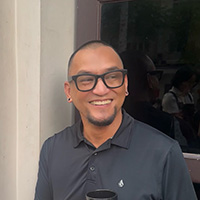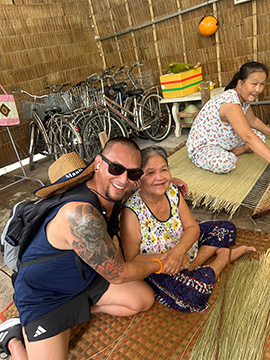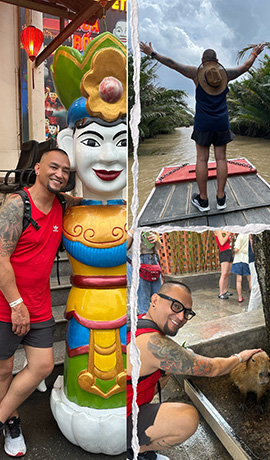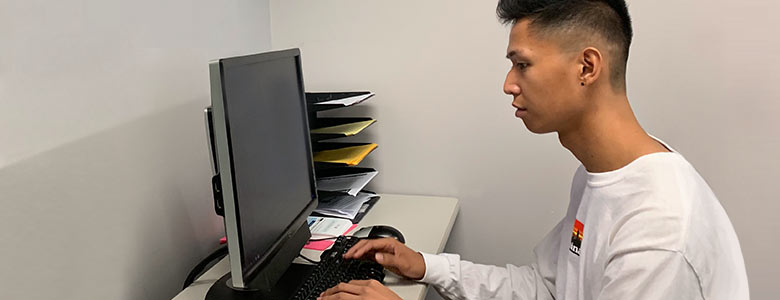Student's Advice for the Masters in Social Work Program

Jason Jamilano
Masters in Social Work, Community Mental Health concentration
“...the program’s balance between clinical practice and advocacy work gives me flexibility for my future career. And being local and affordable, it allows me to stay connected to the community I want to serve long-term.”

Why did you choose CSUF for your Masters in Social Work program?
I chose CSUF’s MSW program because its mission really aligns with my values. The focus on social justice, cultural competence, and serving diverse communities connects directly to the kind of work I want to do in healthcare and mental health settings. I also like that the program has strong partnerships with local agencies and hospitals, which gives me the opportunity to get hands-on experience in the exact field I want to specialize in. On top of that, the program’s balance between clinical practice and advocacy work gives me flexibility for my future career. And being local and affordable, it allows me to stay connected to the community I want to serve long-term.
What did you enjoy about being in a cohort?
The cohort model has been one of the most valuable parts of my experience. Going through the program with the same group of peers created a real sense of support and community. We learned from each other’s diverse backgrounds and perspectives, which broadened my understanding of social work practice. It also helped me build lasting professional relationships that I know will continue well beyond graduation.
You spent time in Vietnam this summer — can you share what that experience was like?
Spending time in Vietnam this summer was both personally and professionally meaningful.
Personally, it gave me the chance to reconnect with culture and traditions that shaped
my family, which deepened my sense of identity and perspective. Professionally, it
reminded me how central culture, family, and community are in shaping people’s experiences
and approaches to challenges. That perspective strengthened my commitment to practicing
cultural humility and being mindful of how diverse backgrounds impact the way clients
engage with services and supports.
.

How did your time in Vietnam connect to or enrich your studies in social work?
My time in Vietnam really enriched my social work studies by giving me a deeper understanding of how culture shapes people’s experiences and needs. I saw firsthand how community and family networks are central to support systems, which reinforced the importance of considering cultural context in assessment and intervention. It also helped me practice cultural humility — recognizing that what works in one setting may not translate to another — which is a perspective I carry into both the classroom and my fieldwork.
What advice do you have for students entering the program?
My advice would be to lean into the cohort model and really build connections with your peers — that support system makes a huge difference. I’d also encourage students to stay open to feedback, because the program will challenge you to grow both personally and professionally. Finally, take care of yourself along the way — the work can be demanding, but practicing self-care early on will help you become a more effective and sustainable social worker.
What are your plans after completing the program?
After completing the program, I plan to pursue a career in healthcare social work, ideally in a hospital setting. I want to work directly with patients and families to support them through crisis, discharge planning, and aftercare. Long-term, I’d like to combine that direct practice with advocacy to address systemic barriers in healthcare access and treatment, especially for underserved communities.











